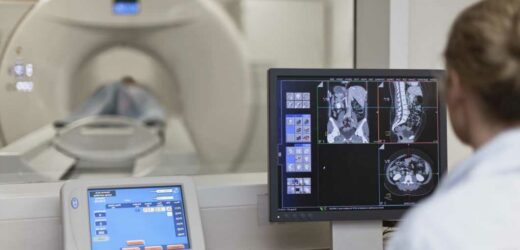MILLIONS of Brits could be cured of high blood pressure thanks to a revolutionary new scan.
The new CT scanner detects hypertension-causing nodules found in the glands of millions of people with the disease within minutes.
A third of all Brits have the life-threatening disease, which can lead to heart attacks, kidney failure and dementia.
And up to one in ten of those only have the condition because of nodules in their adrenal glands which produce excessive amounts of the hormone aldosterone.
The hormone causes the body retain salt which drives up blood pressure.
Patients who have high levels of aldosterone in their body can safely have one adrenal gland removed.
Read more eon high blood pressure
What is high blood pressure and what is a normal reading?
Is hypertension the same as high blood pressure?
Experts from the UK who led the CT scan research hope the new system will help diagnose and cure more people with the life-threatening illness.
Professor Morris Brown of Queen Mary University of London, said: “These nodules are very small and easily overlooked on a regular CT scan.
"When they glow for a few minutes after our injection, they are revealed as the obvious cause of Hypertension, which can often then be cured."
Previous tests used to find the nodules often failed and were painful, according to the researchers.
Most read in Health
Shocking images show real reason behind four-year-old boy's 'colicky pain'
Kick the winter blues with 22 mood boosters that only take 60 seconds
From chewing gum to sleep – 25 of the easiest expert-approved ways to bust fat
I'm a doc – here's how to 'cure' adult acne & the products that really work
The CT scan research was in published in the journal, Nature Medicine.
What are the symptoms of hypertension?
High blood pressure don't typically have many obvious symptoms.
Some symptoms can include severe headaches, fatigue or confusion, vision problems and chest pains.
Sufferers of high blood pressure could also experience difficulty breathing, an irregular heartbeat, blood in the urine and pounding in the chest, neck, or ears.
If you feel any of these symptoms, it's best to get it checked with your GP.
Source: Read Full Article









